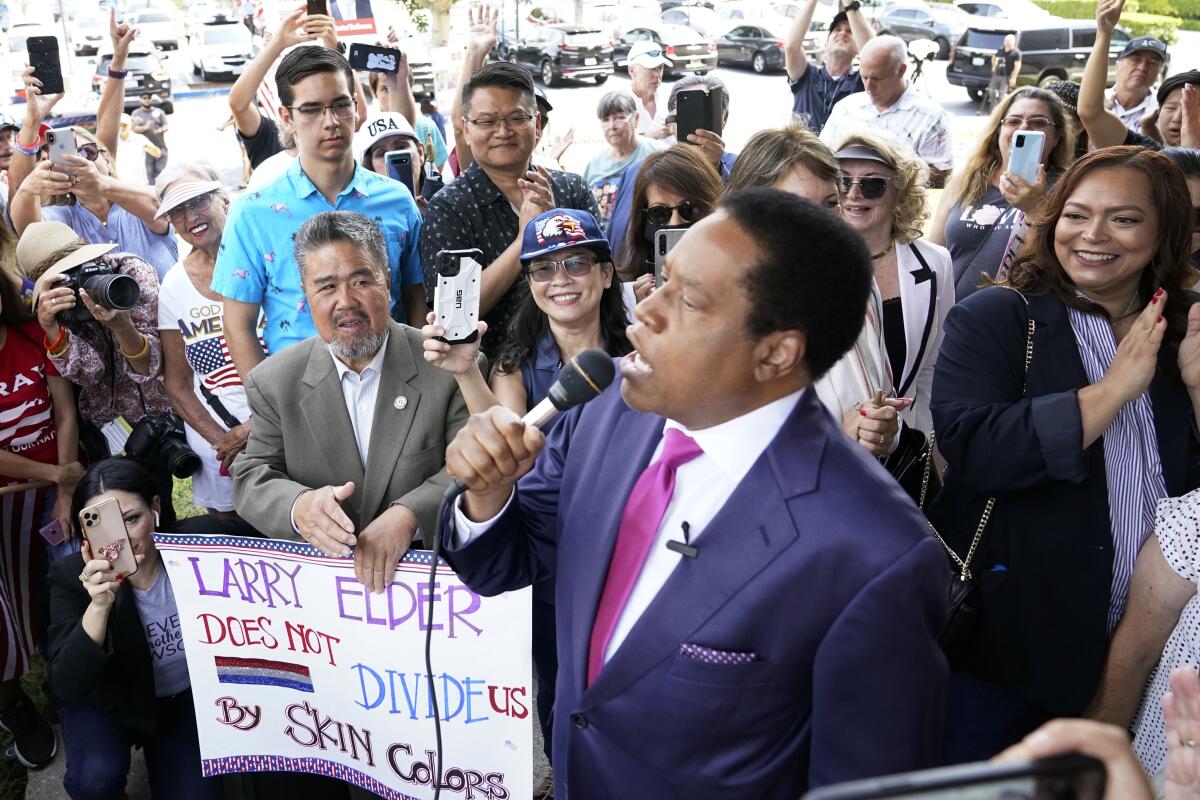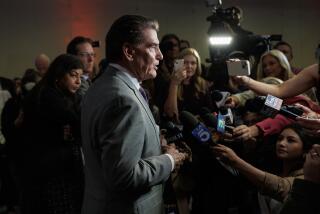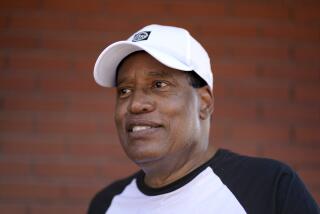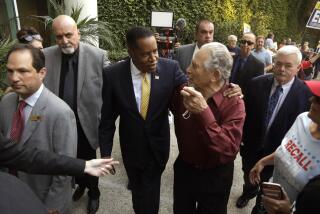Recall candidate Larry Elder appears to have not properly disclosed his finances

- Share via
Larry Elder, the leading contender vying to replace Gov. Gavin Newsom if he is recalled, appears to have not properly listed business holdings on a financial disclosure statement designed to reveal a candidate’s potential conflicts of interest, The Times has found.
Like all candidates in the Sept. 14 election, Elder was required to file a public Statement of Economic Interests that shows his sources of income, business ownership, investments, gifts and loans. The Republican talk show host did not disclose any stake in Laurence A. Elder & Associates Inc., a company he appears to own, experts said.
Elder did list the company as a source of personal income. However, state law requires a separate disclosure of income received by any business in which a candidate holds at least a 10% ownership interest. Sources of income to the business above certain amounts also must be identified.
In response to questions from The Times, a spokeswoman for Elder’s campaign said, “It appears there might have been an oversight.” She did not provide specifics.
“As you know, these are extensive filings containing hundreds of pages. If an innocent mistake was made, the filings will be amended as soon as possible,” the spokeswoman wrote in an email.
Failure to comply with the disclosure requirements carries an administrative penalty of up to $5,000 per violation, according to the state Fair Political Practices Commission.
Jessica Levinson, who has taught election law at Loyola Law School, said candidates sometimes run afoul of the disclosure requirements as “an honest mistake.”
“We should allow people to cure those mistakes,” she said. “If you can cure that quickly, the harm is fairly limited. The other fork in the road is that he knew he had to disclose this information, and he chose not to. ... It leaves us all guessing what’s behind that curtain.”
This is not the first time Elder has run into disclosure problems. The office of the California secretary of state initially excluded him from the recall ballot because he did not properly disclose five years of tax returns to the agency, according to court filings. Elder sued the state over that requirement, arguing in part that it did not apply to recall elections. A judge last month sided with Elder, and the tax return requirement was waived for all candidates in the race.
The Statement of Economic Interests, while not as detailed as a tax return, is intended to show the public where candidates and elected officials might have conflicts in their decision-making that could benefit them financially.
The statement Elder filed shows that over a 12-month period, he received income of more than $100,000 — amounts are disclosed only in broad ranges — from Elder & Associates, whose business activity is listed as “talk show host.” The document disclosed no other financial interests, including ownership in the firm.
Elder is listed on the statement as president of the company, which was originally registered in Ohio. A separate corporate filing he submitted last month to the California secretary of state’s office identified him as the firm’s chief executive, secretary and chief financial officer. That document states that the company’s California address is in South Lake Tahoe; the Statement of Economic Interests lists a Glendale address for the firm. Elder lives in L.A.
Jim Sutton, a San Francisco-based elections law attorney, said the filings indicate that Elder is the owner of the firm. If that is the case, Sutton said, Elder failed to meet a “pretty basic” requirement to disclose the business and its income sources.
“It’s a fundamental disclosure requirement that applies to all candidates,” Sutton said.
Elder has surged ahead in fundraising and polls among candidates vying to replace Newsom if a majority of voters decide to recall the governor.
Radio personalities often engage in paid speaking events and can receive commissions for live advertisement readings and endorsements, said Valerie Geller, a broadcast consultant.
“A lot of times, on-air personalities can be bought. They’re for hire,” Geller said.
Levinson, the elections law professor, said the Elder campaign should address the disclosure matter quickly, because voters are making up their minds on the recall.
“Ballots are arriving in mailboxes,” she said.
Times Staff Writer Seema Mehta contributed to this report.
More to Read
Sign up for Essential California
The most important California stories and recommendations in your inbox every morning.
You may occasionally receive promotional content from the Los Angeles Times.












